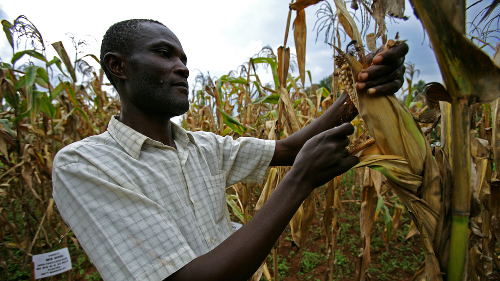Record drought threatens food, copper production in Southern Africa

TLDR
- Severe drought hits southern Africa, impacting crop yields and causing power shortages.
- Record-low or near-record low rainfall reported in Zambia, Botswana, and Zimbabwe in February.
- University of California Santa Barbara's Climate Hazards Center releases preliminary data indicating driest February since 1981 with further evaluation underway.
A vast area of southern Africa, roughly the size of France, experienced the driest February in decades, leading to crop losses and triggering a power shortage that could impact copper mines in a crucial producing region.
According to preliminary data from the University of California Santa Barbara’s Climate Hazards Center, last month saw record-low rainfall or near-record lows in large parts of Zambia, Botswana, and Zimbabwe. This dry spell marks the driest February since records began in 1981.
The center's initial assessment primarily relies on satellite-based rainfall estimates, with a comprehensive evaluation expected next week, incorporating additional rainfall gauge observations.
Key Takeaways
Last month, Zambia officially declared the ongoing drought a national disaster, as President Hakainde Hichilema emphasized that the prolonged absence of rain has severely impacted the agricultural sector, affecting over one million families. The southern African nation experienced five weeks without rainfall, occurring at a critical time for farmers. This situation compounded the challenges posed by a previous dry spell and flooding experienced in the country last year. The crisis, exacerbated by climate change and the El Niño weather phenomenon, poses significant threats to national food security, as well as water and energy supply. Zambia, being Africa’s second-largest copper producer, faces substantial challenges as it navigates through these adverse weather conditions.

Next Frontier
Stay up to date on major news and events in African markets. Delivered weekly.
Pulse54
UDeep-dives into what’s old and new in Africa’s investment landscape. Delivered twice monthly.
Events
Sign up to stay informed about our regular webinars, product launches, and exhibitions.




